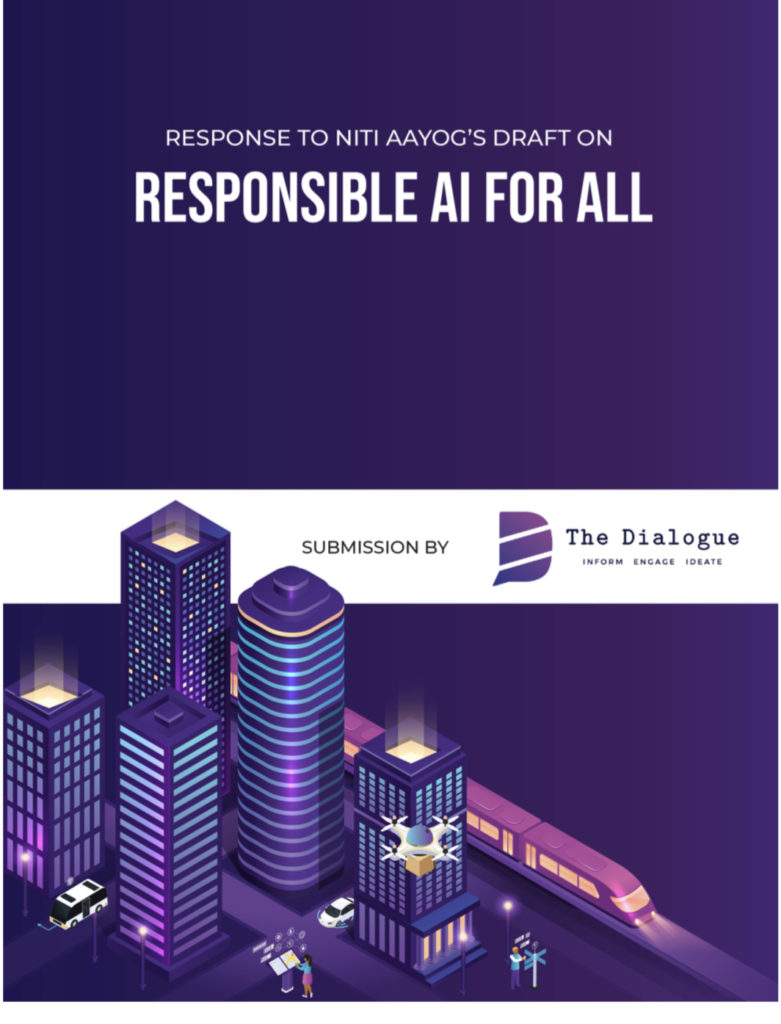In the age of Artificial Intelligence governing our lives across sectors, NITI Aayog’s Draft on ‘Responsible AI for all’ is a timely development. There are a number of measures taken by the Government of India, primarily in dissemination of public welfare goods and services i.e. Aadhaar, which works on ‘probabilistic algorithmic systems’. Evaluating the potential of AI in transforming economies, the Hon’ble Finance Minister in 2018- 19 annual budget mandated NITI Aayog to establish a National Program on AI, with the intent to guide research and development in the emerging technologies in India.
As a result of actively engaging with key technology players in India across sectors, it released a discussion paper in 2018 under the tagline #AIforALL which focussed on expanding the dimensions of India’s social and economic growth. This was followed by a working document, released in 2019, with the intent to develop an approach towards ensuring responsible usage of AI in India.
The Dialogue has prepared a report to assist NITI Aayog in arriving at a comprehensive framework for Responsible #AIforAll. The team has delved deep into each of the principles along with explaining the potential of AI and has identified the approach that can be adopted to uphold constitutional morality in the AI technologies. The direct and indirect impact of AI technologies has been further substantiated by taking into account the sociological dimensions as well.
The report briefly outlined frameworks such as Algorithm Impact Assessment, Human Rights Impact Assessment and Trust and Fairness Framework which can aid NITI Aayog in building a comprehensive framework that assists India in achieving #AIforAll.
Further, the team has given several recommendations to address the digital divide by increasing the focus on infrastructural development for research and innovation of AI use cases in the underdeveloped states, increasing representation in the data sets collected for modelling and training algorithms, increasing the frequency of independent audits for impact assessment and ensuring transparency of the goals behind development of AI use cases while ensuring environmental safeguards are in place.
This document has also suggested clause 17 in the PDP Bill, 2019 to include Right to Explanation of the use of personal data and explained the need to implement a Data Governance Framework for both Personal and Non-personal data.
Once this overarching framework is in place, it should then be followed by sector specific regulations to account for varying degrees of implementation in the sector, the stakeholders involved and so on along with adapting the existing laws dealing with labour and intellectual property rights, to the deployment of AI technologies.
Read the full report here: https://thedialogue.co/wp-content/uploads/2020/09/Responsible-AI-for-All-Submission_NITI-Aayog_-The-Dialogue-1.pdf
